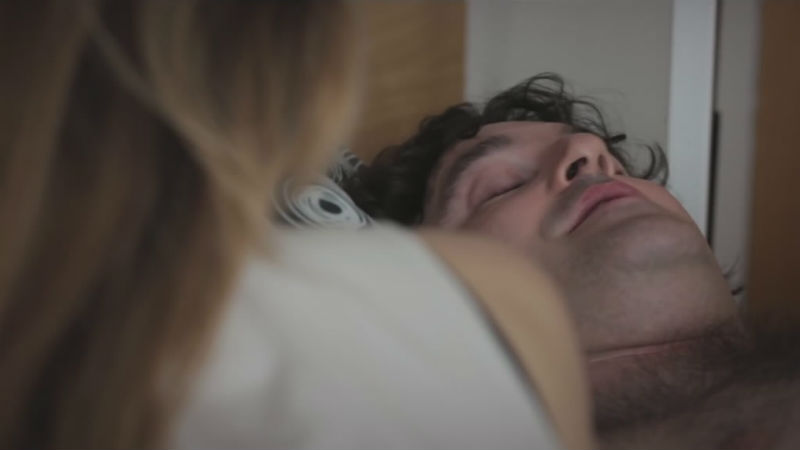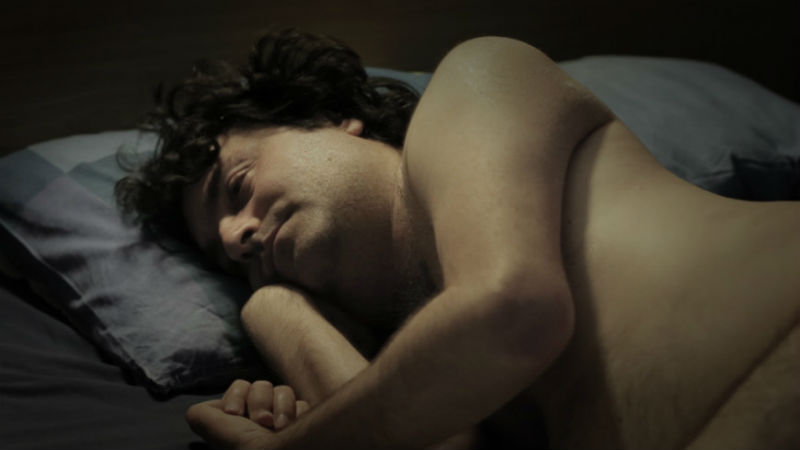QUICK SNAP: LIVE FROM TALLINN
A man carries another man on his back through the mountains while saying “We have the tradition of keeping company to one on their last journey”. This scene immediately recalls Shohei Imamura’s The Ballad of Narayama (1983), the Japanese classic in which people are carried uphill to the mountaintop, where they are left to die. The context however soon turns out to be slightly different. This man is not being carried to his death, but instead to help others to die. And he’s being taken downhill, away from the mountaintop.
The man in question is Armugan (Inigo Martinez). Armugan is a “finisher”, an ancient type of witch who helps people to die. He lives in a very remote and primitive house on the mountains with his sheep, and he relies on his assistant Anchel (Gonzalo Cunill) to take him down in order to see his “patients” in town. The journey is a rocky and hard one. Fortunately for Armugan, Anchel is a young and virile man who can literally carry the weight on his shoulders.
I’m not entirely sure whether “patient” is the best word to describe the people Armugan assists. After all, he doesn’t heal them (unless you thin life is a disease). I wouldn’t call them “clients” either because Armugan doesn’t seem to get paid for his work. And they are definitely not “victims” either because the ritual is entirely consensual. They are just very unfortunate people, trapped in a dysfunctional body and sentenced to intense suffering. For them, death represents the only possibility of liberation. Armugan is a backwards healer. A backwards Grim Reaper. A heavenly version version of Death.
Armugan too is confined to a failing body, with very pronounced physical limitations. He has a facial disfigurement, presumably some sort of congenital cranial condition. His feet are twisted and his body diminutive. He is unable to walk on his own, and instead crawls on the ground. His sheep stand taller and walk faster than their owner. Plus his speech is barely intelligible. It is Anche’s voice that guides the hapless people through the “finishing” rituals. Armugan’s hands, however, are very solid and robust. They are the ultimate conduit of death.
The ethics of euthanasia are brought into question repeated times. The Christian world perceives euthanasia as sinful and cowardly act. It is both frowned upon and criminalised. Armugan vehemently asserts: “I do not kill people”. A mother recognises her selfishness in wanting to keep her son alive against his will. The child does not wish to be chained to this life through machines. In fact, he hates life. By extension, he also hates his mother. Death is the only desirable solution.
This black and white movie experience is deeply philosophical and poetic. The Laconic characters speak through their actions. Nature speaks through the magnificent photography of the mountains, the clouds and the sky. The human body speaks through the numerous close-ups of Armugan’s very masculine and yet very sickly body. A fascinating movie, however not easily digestible.
Armugan has just premiered at the 24th Tallinn Black Nights Film Festival, where it’s showing in Competition.










